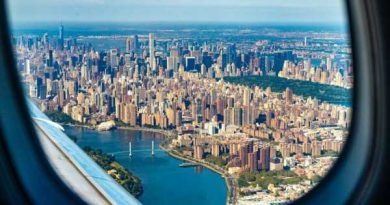COVID border ‘madness’ we have to stop
COMMENT
So that’s it then, Australia’s borders are closed until mid-2022.
On page 36 of budget paper 1 was the bad news for anyone with a family overseas: “Inbound and international travel is expected to remain low through to mid-2022”.
Almost 30 per cent of Australians are first generation immigrants, many with parents overseas.
With a resigned sigh, some of those are now considering leaving jobs and homes here and emigrating back from whence they came. They don’t want to, but if the choice is between Australia and seeing elderly parents, some will choose the latter.
Much of the border barricading appears to be down one number: zero, and its irresistible allure. It’s an almost unique and bizarre Australian phenomenon.
Vaccinations are, slowly, cranking up in Australia. Picture: NCA NewsWire/Bianca De MarchiSource:News Corp Australia
Not zero, but actually kinda zero
The depressing budget forecast came days after Prime Minister Scott Morrison was reported as saying borders would be closed “indefinitely” as there was a “target of zero cases”. He later said he’d been “misreported” and there was no “zero” target.
But he did say vaccinated people might only be allowed to travel if there was “clear evidence that this prevents transmissibility”.
Official policy or not, that sounds a lot like a strategy to ensure zero — or near zero — COVID-19 cases cross the border and get out into the community.
That might make sense right now; no one is suggesting the frontier should be flung open a week next Tuesday. It will no longer make sense if, down the line, vaccines do their job and serious cases of COVID plummet.
Closed borders will then look less like a health measure, and more like a political ploy.
For most nations, reducing COVID transmission to low levels with few if any serious cases is the target — not zero.
We don’t yet know if that will come to pass. But the signs from countries with high rates of inoculation are promising.
In the UK, where 27 per cent of people are fully vaccinated, 2000 cases a day are being recorded. Sounds a lot — but that’s down from a high of 67,000 in a single day in January. On Monday, no one died of COVID-19 in England, and that’s with three quarters of the population still yet to get there full dose.
Israel has vaccinated 56 per cent of its residents. It had 43 cases yesterday and zero deaths. Fully vaxxed Bhutan has had one death – throughout the whole pandemic.
If, in a few months’ time, countries like Israel and the UK are continuing to see some cases but few hospitalisations, Australia will have to question its zero cases fixation.
Hell London, at some point in 2022, 2023, who knows? (Photo by Leon Neal/Getty Images)Source:Getty Images
Australia’s sluggish vaccine rollout means it could indeed take until 2022 to vaccinate everyone. But if it picks up the pace and many Aussies, including those most at risk, get jabbed earlier, what then?
The single-minded focus on zero cases alone will become harder to justify as more people get their AstraZeneca or Pfizer shot.
Fully vaccinated Aussies will begin to ask why vaccinated Brits and Israelis, Americans and Spaniards, can jet off to see family but they can’t. Zero could mean people’s grandmas and grandpas, mothers and fathers will die needlessly separated from their Aussie loved ones, with last goodbyes done via Zoom.
The reality is the rest of the world may never get to zero cases but will carry on, just with far fewer people falling ill. If Australia insists on zero cases, we’ll carry on too, just with borders closed indefinitely and immigrants making heartbreaking decisions about whether to stay or go.
trending in travel
Source: Read Full Article





